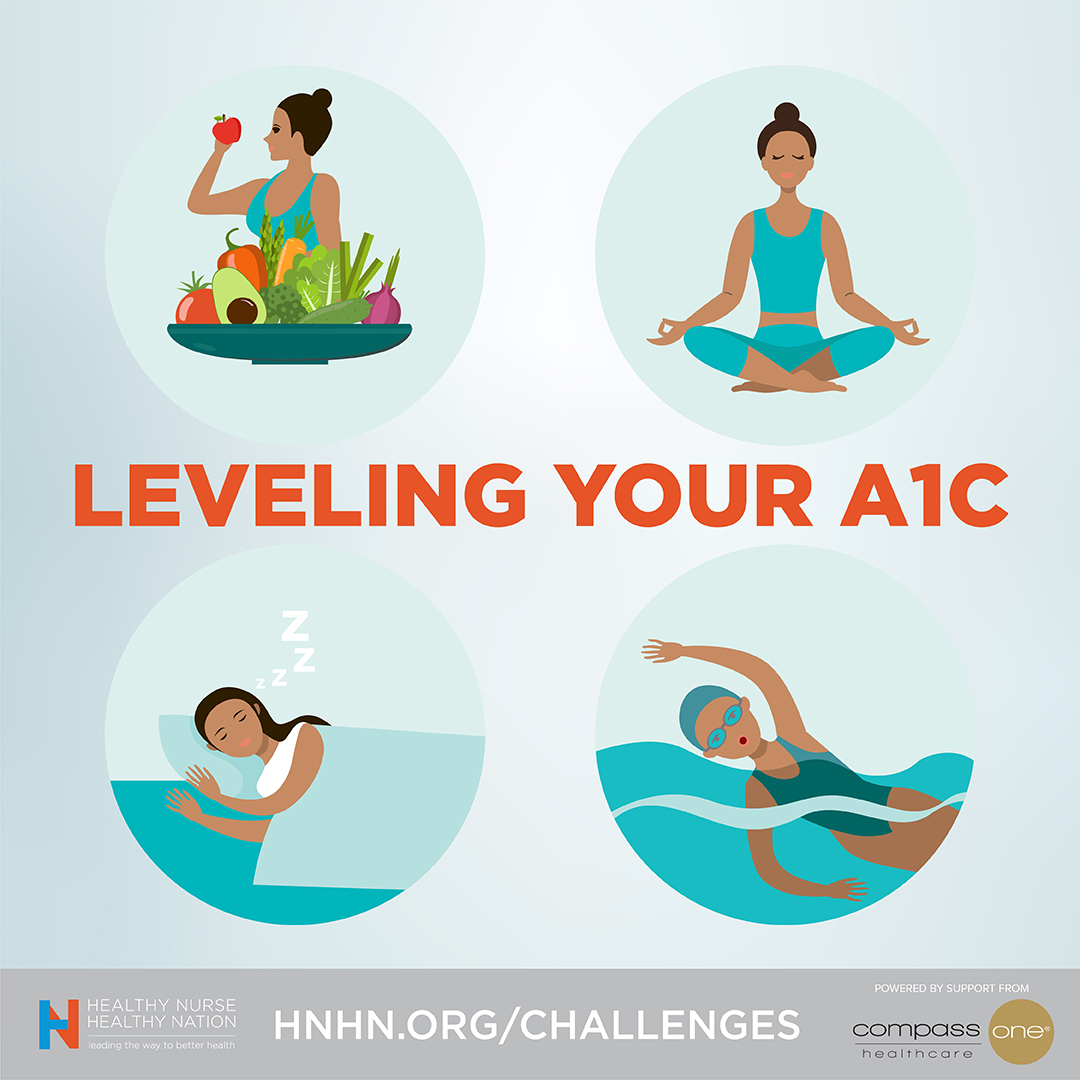Healthy Nurse, Healthy Nation™ Blog - Improve Your Blood Sugar Levels To Improve Your Health
Published
DISCLAIMER: The content provided on this webpage is general in nature and does not constitute medical advice. This webpage is for reference only. Always consult with a qualified health care provider for any questions you may have regarding your health.
Do you have diabetes, or are you at risk for developing it?
Your blood sugar levels are a good indicator of your overall health. And during National Diabetes Month, it’s the perfect time to learn more about the test that detects diabetes (and how you can avoid ever needing it.)
The A1C blood test detects whether you have type 1 or 2 diabetes, or if you are at risk of developing it (prediabetes). For those who already have diabetes, A1C is a critical monitoring system that measures the effectiveness of your on-going diabetes treatment. Anyone can request an A1C test — you can even buy an at-home kit at your local pharmacy, but check with your healthcare provider first.
“Hemoglobin A1C has a 3-month lifespan,” said Peggy O’Neill, VP of Nutrition and Wellness at Morrison Healthcare. “The test measures whether your blood sugar has been high over the past 3 months, rather than just on the day of the test.”
If the test comes back with a percentage below 5.7%, your blood sugars are normal. Anything between 5.7% and 6.4% signals pre-diabetes, and anything higher than 6.4% is considered diabetes.
High Blood Sugars and Health
So, why should you care? When your blood sugars are out of whack for a long period of time, it can cause all sorts of health issues, including:
- Increased risk of stroke
- Extreme thirst
- Higher risk of heart disease
- Fatigue and lack of energy
- Pancreas malfunction
- Damaged blood vessels and nerves
- High blood pressure
That’s why it’s crucial to know the state of your blood sugars and work to improve them. You can do this whether you have diabetes or not — it’s all about implementing healthy lifestyles that everyone should follow.
Peggy suggests focusing on small changes that impact the following:
Diet and nutrition: Eating the right foods (like choosing complex carbohydrates over simple carbs) can do wonders for your blood sugar levels. You don’t have to cut out all sweets, but you should watch your carb intake and choose natural sugars over added sugars.
Exercise and weight loss: Physical activity has a direct impact on blood sugar levels up to 24 hours after your workout because it makes the body more sensitive to insulin. Strive to get some type of exercise every day.
Stress relief: Stress releases higher levels of cortisol, and people with high cortisol have a harder time managing blood sugar levels. Find a way to destress and give yourself some “me-time” each day.
Healthy sleep: Studies show that inefficient sleep worsens the body’s ability to break down glucose. By focusing on quality sleep, you’re positively impacting your A1C. Make it a priority to get at least 7 to 9 hours of sleep each night.
This blog is made possible by Morrison Healthcare, an operating division of Compass One Healthcare.
Updated 2/16/22

Have you joined Healthy Nurse, Healthy Nation (HNHN) yet? Join us today!
Blog Nutrition
11/12/2020 9:08am CST



Post a Comment or Question